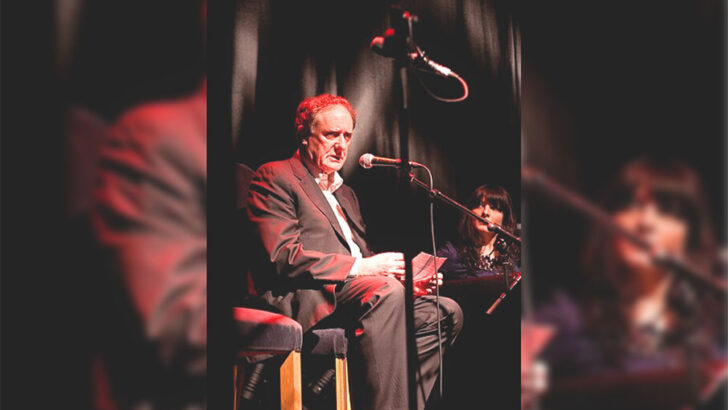It’s not unusual – when a person passes the milestone of 80 years of age – to ask what they celebrate and what they regret over the passage of their lives.
Vincent Browne, the legendary publisher, editor, journalist, and inquisitorial broadcaster who, in his time, made politicians quake in their shoes, says that his greatest regret is “that I copped on so late in my journalistic career to the central issue: equality.”
My journey was rather in the opposite direction: I was fired up about ‘equality’ when young. Feminism and a shallow grasp of Marxism made me committed to this idea. It was only through the vagaries of life’s pathways that I came to see that equality was unachievable; and that its pursuit often made people unhappy and depressed.
Diversity
Human nature is so diverse, so variable in talent, aptitude and temperament, that any one-size-fits-all construct has never worked. Apart from anything else, individuals have such different goals and ambitions.
I once met an immensely rich man called Felix Dennis. From a modest background, he had made millions in international magazine publishing, and he told me the secret of how to get rich. “Focus on money,” he said. “Concentrate on it, morning, noon and night. Prioritise it over your family and friends. Own everything you can – ownership is riches. Then, when you are finally rich, focus on defending your wealth.” At that moment, I realised how different people are. I wouldn’t have shared any of his values.
As soon as there is diversity, people will differ in so many ways, which will automatically make equality less likely.
Equality between men and women is a chimera; males and females are different, and you can’t have equality between that which is different. In some spheres women are superior to men, such as personality agreeableness and verbal dexterity. But striving to be the same as men is a recipe for misery, as I know from personal experience. Let women have emancipation and liberation from social fetters, not the false promise of equality.
Yes, every citizen is equal before the law. And as that admirable British parliamentarian (and Catholic) Shirley Williams once said in answer to a question about equality, “everyone is equal in the eyes of the Lord.”
“What Baroness Williams said is true: we are only equal in the eyes of the Lord”
Fairness, respect, and opportunity to thrive are marks of a decent society. Fair access to education is vital. But when equality is held as standard, those who are less successful in life feel their failures are due to their own inadequacy, and their own fault – whereas it may well be, as Ecclesiastes puts it, merely time and chance.
Vincent retains the values of his Catholic formation, if not the faith – he was influenced by Limerick priests who strove for justice. And he’s always shown a keen pursuit of justice. But for me, what Baroness Williams said is true: we are only equal in the eyes of the Lord.
***
The latest claims about Bishop Eamonn Casey are shocking indeed: his niece, Patrician Donovan, says he raped her from the age of five. And other claimants have come forward too. An appalling situation.
Ian Elliott, previously of the National Board for Safeguarding Children in the Catholic Church, has described the late bishop as a ‘sexual predator’.
It is regrettable that these accusations were not made public during Eamonn Casey’s lifetime.
The scandal about his relationship with Annie Murphy emerged in 1992. Surely this was the moment to launch these extra allegations?
Justice for victims is essential. But post-mortem accusations are not ideal. However heinous the crime alleged, everyone is entitled to a defence. Even the top Nazis were allowed a defence of their crimes.
Desperate responses to dire birthrates
Finland has the best education system in the world, according to the World Economic Forum’s Global Competitiveness measurement.
But there’s trouble brewing in educational paradise. The schools remain excellent, but they’re running short of clients. Because of Finland’s low birth rate (1.46 children per woman) and projected decline in population, some Finnish schools are now looking abroad for school pupils to fill the gap.
Hundreds of rural schools have closed down because the child population is shrinking, so a Finnish startup called ‘Finest Future’ are hoping to import foreign children – from Asian, Africa and Latin American – to attend Finland’s secondary schools. They are looking to attract some 15,000 youngsters from overseas to avail of this fine Finnish education.
I daresay there are many young people overseas who will relish the opportunity, which will also virtually guarantee a place at a Finnish university. The downside – a challenging climate, 20 hours-a-day darkness in the depths of winter, and a heck of a difficult language to master – won’t deter the brightest and best, surely.
But this scenario is a harbinger of things to come. If present birth rates continue to fall, countries will be competing to import children.


 Mary Kenny
Mary Kenny Irish broadcaster and journalist Vincent Browne. Photo: Paul Reynolds
Irish broadcaster and journalist Vincent Browne. Photo: Paul Reynolds 